The Load: Leon Lucev as Vlada
Fahrenheit 451 (Raman Bahrani).
(Shown in Midnight Screenings.)
A not-quite-successful HBO-sponsored adaptation of the Bradberry novel already famously adapted by Truffaut in 1966 with a memorable cast (Julie Christie, Osker Werner, Cyril Cusack). Kevin O'Keefe in his Variety review confirms an impression of the new film's trailer: that Bahrani has slashed and burned the source itself, doubtless in an effort to make it "up to date" and pointedly relevant to current cultural depredations. There may even be something over-pushed toward the trendy in the casting of Michael B. Jordan with Michael Shannon. Bahrani has added new key words, "eels" for book-advocates, their program "OMNIS," "The Nine" for the TV propaganda station, the government "the ministry." And the whole has been flashily dumbed down for YA "Hunger Games" or "Maze Runners" fans. Gwilym Mumford in the Guardian argues the Trump era has led adapters to hunt wildly for sci-fi dystopia books that will seem relevant, but this one isn't, really, at a time when so much information is as close as your smart phone. I like Mumford's end note: "No film adaption could match the potency and thrill of reading a book about a world where books are banned." Tood McCarthy in Hollywood Reporter is underwhelmed too and says even with Jordan this "wouldn't have cut it as a theatrical release." The first part he says has been turned (inappropriately) into "a kick-ass actioner." He finds Jordan far less good than in Black Panther and thinks (as do I) that Shannon needs reprogramming to some more non-formulaic typecast roles if he's not to become tedious and repetitive. One can only be glad Woody Harrelson isn't in this. As with most film adaptations of classics, this will provide good material for debate.
Diamandino (Gabriel Abrantes, Daniel Schmidt).
(Shown in Critics Week.)
"A sweetly bizarre fantasy mocking the cult of fame," says Sophie Monks Kaufman in Sight and Sound (BFI online), who says it's intentionally "overstuffed" with visual and narrative details. "Gabriel Abrantes and Daniel Schmidt rustle up one of the year's most singular debuts with this winningly bizarre, genre-melding political satire," writes Guy Lodge in his Variety review of Diamantino. In this EU-endorsing comic satire, set in Portugal, a bunch of giant floppy puppies run onto the field every time a soccer star scores a goal, like the Winnie-the-Poohs that shower the rink when Yuzuru Hanyu finishes one of his dreamily near-perfect figure skating performances. But it's all in the head of the eponymous star (Carloto Cotto), who turns out to be. . . gayish, to say the least. Somehow it's all a sendup of right wingers when the protagonist is duped into participating in an anti-EU campaign by his evil twin sisters - but it's better not to know much before seeing this film, says Lodge. And so says also Boyd van Hoeij in Hollywood Reporter in an even more glowing review. This "potential cult object" is sure to be a festival hit, and would be fun to watch, if we get the chance.
Bergman — A Year in a Life (James Magnusson).
(Shown in Cannes Classics.)
A documentary depicting the great filmmaker's lust for life, ambition and competitiveness, focusing on his life in 1957, the year he made The Seventh Seal and Wild Srawberries and changed the lives of all cinephiles old enough to go to the movies then. Reviewed by Owen Gleiberman in Variety, who says " it captures Bergman as the tender and prickly, effusive and demon-driven, tyrannical and half-crazy celebrity-genius he was: a man so consumed by work, and by his obsessive relationships with women, that he seemed to be carrying on three lives at once." Another panel in the diorama showing that great artists need not be and often aren't nice guys.
The Load/Teret (Ognjen Glavonić).
(Shown in Directors' Fortnight.)
Kosovo 1999, violent events depicted in the distance while focused on the driver of a small trick over tough terrain carrying a secret yet officially sanctioned cargo, in this subtle reference to an actual grim incident. A "harshly intelligent and uncompromisingly spare story," writes Jessica Kiang in her Variety review, which makes this fiction feature debut sound very intriguing. "A strong inclusion in Directors' Fortnight," writes Sarah Ward in her ScreenDaily review.
Climax (Gaspar Noé).
(Shown in Directors' Fortnight.)
This latest phantasmagoria focuses on a dance troupe in 1996 a remote snowbound lodge whose dance battles take an extreme turn after someone spikes the sangria with LSD. Better (and more succinct at 96 minutes) than Enter the Void or Love says Owen Gleiberman in his Variety review, and it continues Noé's talented efforts to show his audience the depths of hell. Eric Kohn in his Indiewire review finds this Noé's "most focused achievement" and says this "might be his best movie." Robbie Collin in the Telegraph says Climax "plays something like Pasolini’s stomach-churning Salò by way of the old Busby Berkeley extravaganza Gold Diggers of 1933." Difficult to picture, of course. So if you want to know what it means, you'll have to see the film. I'm guessing it will release in New York and Los Angeles, the former possibly at IFC Center.
Climax has now won the Directors' Fortnight Jury Prize (May 17).
Pope Francis: A Man of His Word (Wim Wenders).
(Shown in Special Screenings.)
The news may be partly the excellent access (but without, not surprisingly, deep revelations about the inner man), and partly just the fact of Wim Wenders doing this, though one recalles his making a 3D documentary about a famous dancer that he loved, Pina (2011, NYFF); there have been many films from him since then). This will come to Landmark Theaters before very long. (You can read my May 18 review of Pope Francis here: CLICK.)
A Man of Integrity (Mohammad Rasoulof).
This sterling drama continues the Iranian director's home-made cinematic crusade against the moral depredations of his country, which therefore are clandestinely made and locally banned. This one focuses on a man who, as the title suggests, fights the immorality and injustice around him or, as Alissa Simon puts it in her Variety review, "examines what defines a human being in a society that has lost its moral center." The protagonist goes to a country town after opposing bad food fed to factory workers in Tehran gets him expelled from a teacher's college, and he runs a goldfish farm, but this town turns out to be dominated by evil, corrupt forces. We see Reza, the hero, go through the trials of Job because he refuses to conform, explains Deborah Young in Hollywood Reporter. Some of the references may elude a non-Iranian audience, she says. So it is not certain how you or I would experience this film.






 Reply With Quote
Reply With Quote
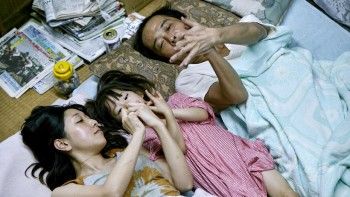
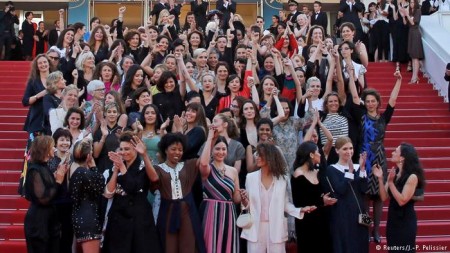

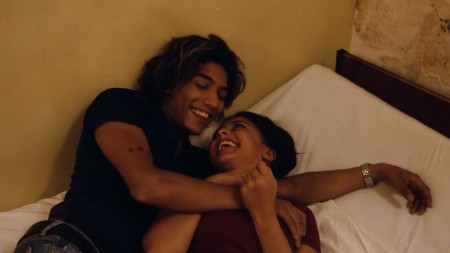
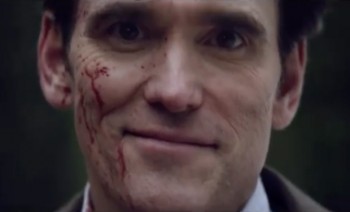

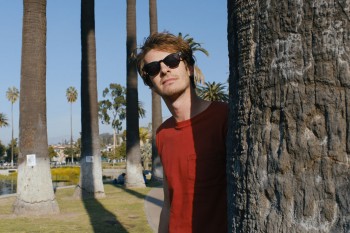
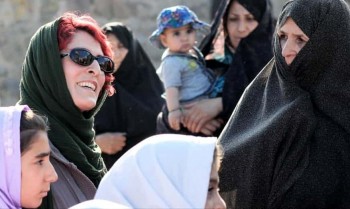




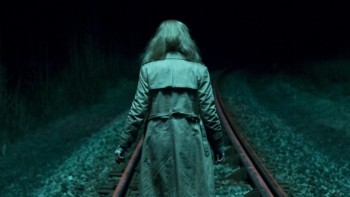
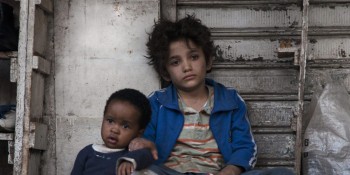
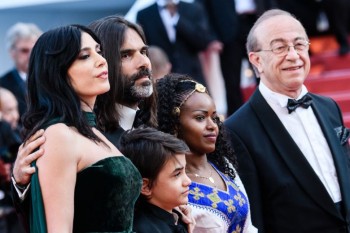

Bookmarks